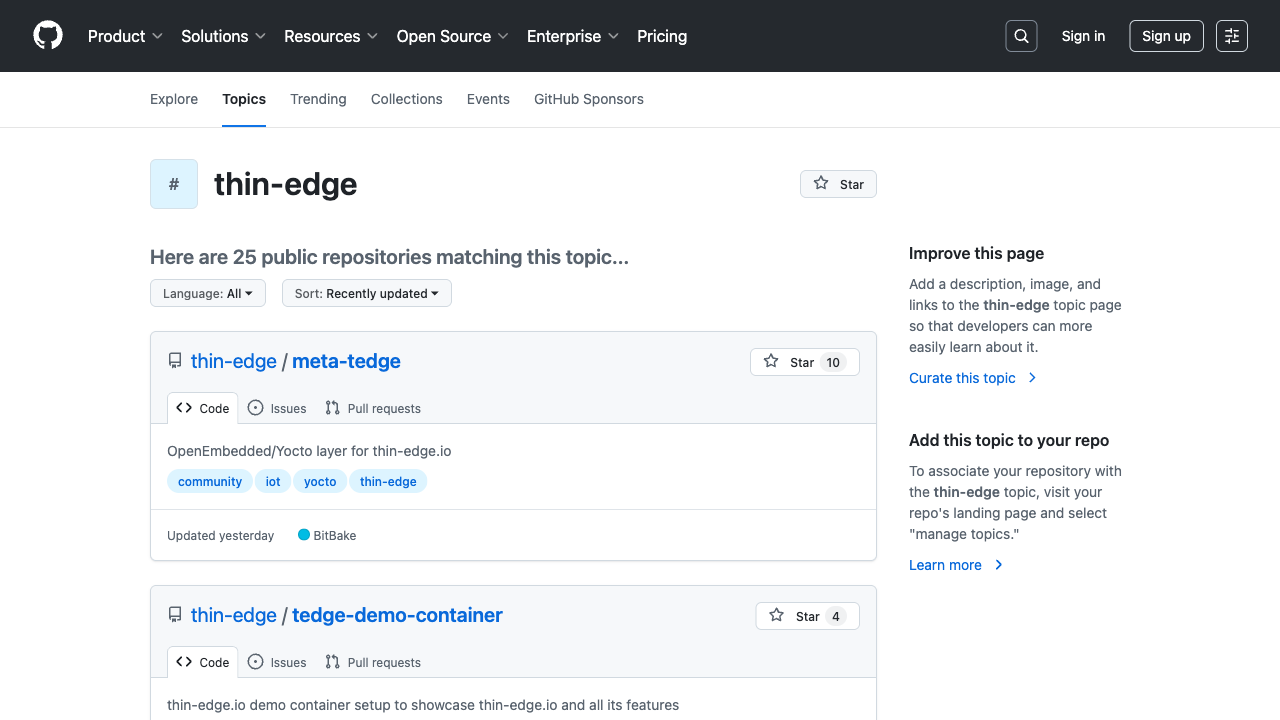Community Plugins
The following pages contain a list of available community plugins. You can use these plugins directly or as a reference for creating your own plugins.
Plugins List
The list can be filtered by keywords and/or text to find plugins which are useful to you.
📦c8y-tedge
go-c8y-cli extension to provide common utilities to help with bootstrapping thin-edge.io devices to Cumulocity IoT
📦cumulocity-remote-access-cloud-http-proxy
A Cumulocity IoT microservice that allows to proxy HTTP requests through the cloud to an HTTP server running on a Cumulocity IoT connected device
📦freertos-esp32-client
thin-edge.io child device client to run on an esp32 microcontroller
📦meta-tedge
Yocto Layer to build and install thin-edge.io from source (including kas project files which makes it easy to build Over-the-Air enabled images)
📦modbus-plugin
Modbus gateway to connect to modbus devices and publish to the cloud via thin-edge.io.
📦opcua-device-gateway
OPC UA Gateway example which uses the Cumulocity IoT opcua-device-gateway to connect to OPC UA Servers and thin-edge.io
📦rpi-pico-client
Micropython agent (for microcontrollers) to connect to local thin-edge.io to manage devices like Raspberry Pi Pico W
📦tedge-archive-plugin
thin-edge.io archive software management plugin for devices without any package managers
📦tedge-benchmark
Python based MQTT benchmarking package to test the throughput of the MQTT message on a target device
📦tedge-config2mqtt-watcher
Services which watches the tedge.toml file and publishes message on the local MQTT broker
📦tedge-container-bundle
thin-edge.io. s6-overlay container setup to run all the components in a single container
📦tedge-container-plugin
Manage container or container groups (e.g. docker compose)
📦tedge-demo-container
Demo container setup to showcase thin-edge.io and all its features
📦tedge-inventory-plugin
Collect device information periodically via simple script based interface
📦tedge-rugix-core
thin-edge.io rugix images/recipes used by the tedge-rugix-image project
📦tedge-standalone
Run thin-edge.io as standalone without any init system and using static binaries include the MQTT broker
📦tedge-systemd
thin-edge.io systemd service definitions. Note: These definitions are provided to make it easier to add into Yocto builds.
Submitting a new plugin
The list of plugins included in the documentation is maintained in the documentation repository.
New plugins can be added by following these instructions.
Github hosted plugins
In addition, a list of Github plugins are visible directly from Github. If your plugin is hosted on Github as a public repository, then you can make your plugin discoverable by adding the thin-edge tag to the repository, afterwards the plugin will appear in the list.
